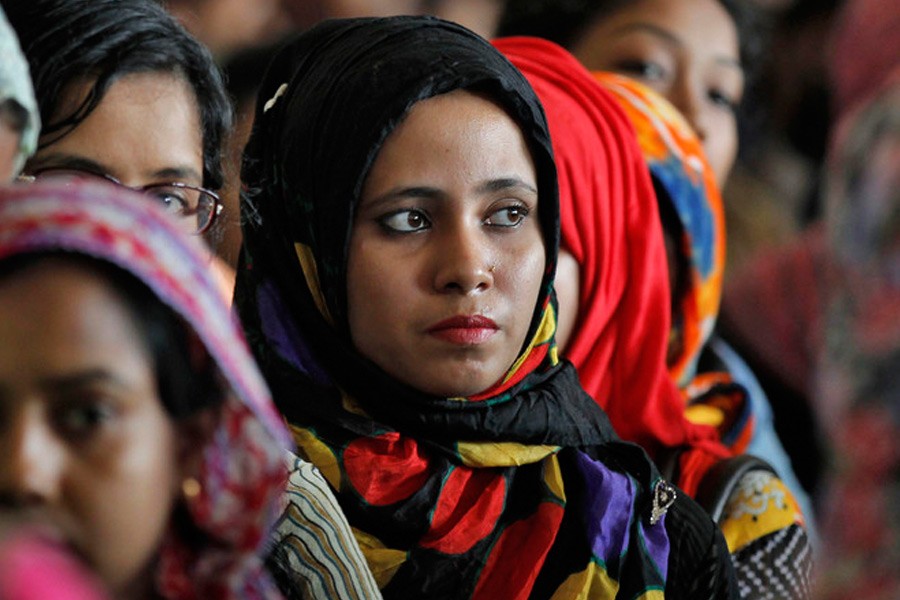More than 1,500 domestic helps returned home from Saudi Arabia in the last six months because of workplace abuse, sources said.
On average, 250 female workers return from the country a month, they added.
Some 40 women were also due to return on Monday night, according to the expatriate welfare desk at Hazrat Shahjalal International Airport.
Still, 300 are said to have been staying at safe home of Bangladesh embassy and Saudi immigration camp.
About 80 per cent of women were forced to come back within one to six months of their job period, according to the returnees.
They faced exploitations like denial of wages and sexual and physical assaults in workplaces.
For this, at least 20 women faced severe psychological trauma there and took treatment at National Institute of Mental Health upon their return home.
Of those traumatised, Rupali is still undergoing treatment at the institute, said a representative of BRAC migration programme.
These problems aside, families and even societies have not accepted many of the returnees easily, he said.
Some of the hapless women have taken shelter at their relatives' houses, he added.
Selina (not her real name) returned home two months ago. She said her recruiter had sold her twice.
"As I wished to come back home, they assaulted me. Even I didn't get my dues before I returned," she lamented.
After getting divorced, Selina turned to be the anchor of her family. So, she planned to go abroad with a job.
She borrowed some money to meet her migration costs. The lender now is putting pressure on her to repay it.
There are dozens of such tragic, harrowing tales like Selina's.
Still, the number of women outbound workers is on the rise to the Gulf country.
A total of 39,578 women migrants went there with jobs in the first five months of 2018.
In the corresponding period of 2017, the oil-rich country hired 37,856 home helps from Bangladesh, official data showed.
The Bureau of Manpower Employment and Training (BMET) data also revealed that the KSA recruited 9,476 women in May and 8,492 in April this year.
But the returnees alleged that they are not getting the least help from the ministry and the department concerned.
On return from abroad, Monoara is suffering from severe trauma.
Her brother, Sakibur Rahman, said he cannot afford her treatment costs at a mental hospital.
Monoara was brutally tortured by her employer in Saudi Arabia, he alleged.
"She can't respond normally," Mr Rahman told the FE.
It is necessary to admit her to hospital immediately to help her get back her normal life, he observed.
"But we're yet to get any support from the government. They even didn't communicate with us," Mr Rahman said.
Officials of expatriates' welfare and overseas employment ministry rejected request for comments.
Shariful Islam, head of BRAC migration programme, said the government should take the responsibility of the women who went to the KSA through the official channel.
"Unfortunately, they are not being provided with the necessary support from the government," he told this correspondent.
Bangladesh Obhibasi Mohila Sramik Association said women returnees are literally helpless.
Without adequate support, it said, they are unable to rebuild their lives.
An official of the Wage Earners' Welfare Board said they can assist the workers if they get any directive from the Bangladesh embassy in Saudi Arabia.
Otherwise, they cannot provide support, he told the FE.
Bangladesh Association of International Recruiting Agencies president Benzir Ahmed confirmed that they have no scheme to help the workers reintegrate.
More than 0.2 million women had gone to the KSA since the signing of a recruitment deal in 2015. Of them, about 5,000 returned home in the last three years.
They alleged that workplace exploitations like denial of wages and sexual and physical abuses forced them to return home.
More than 0.7 million women have gone abroad with jobs since 1991.


